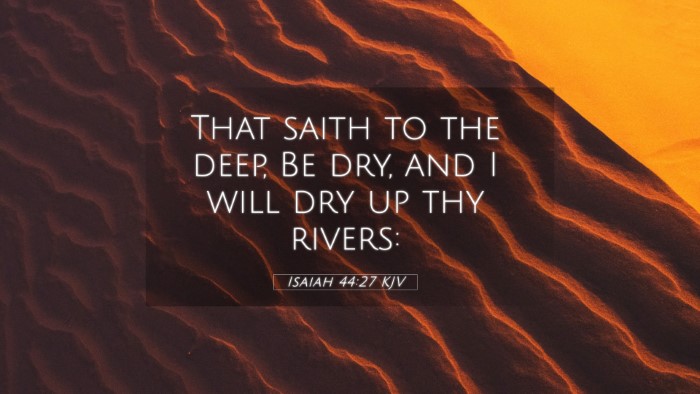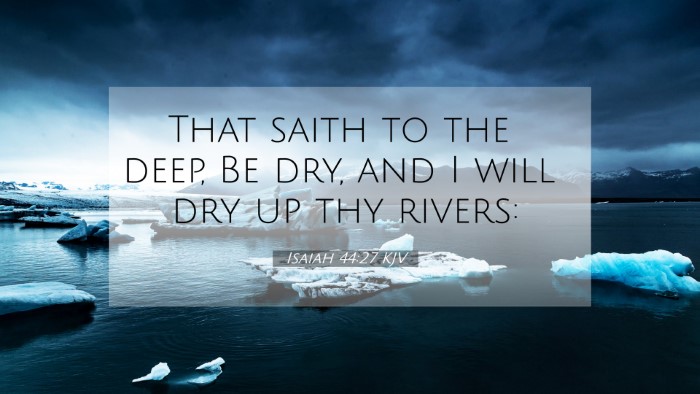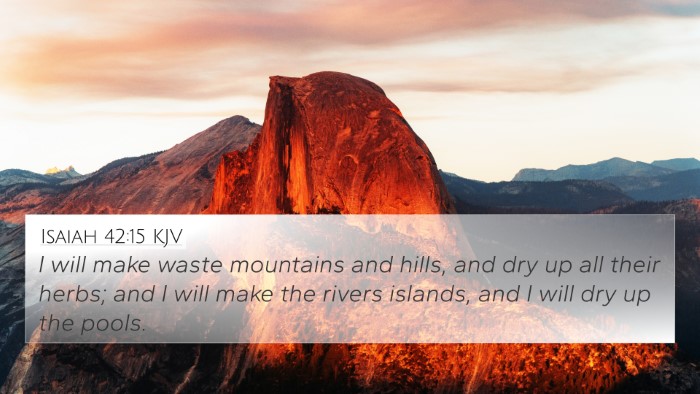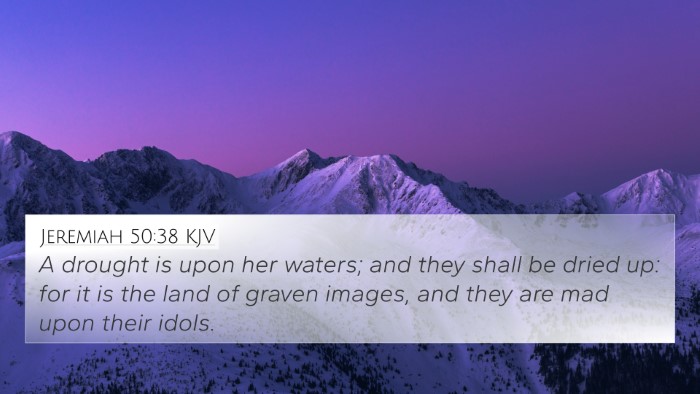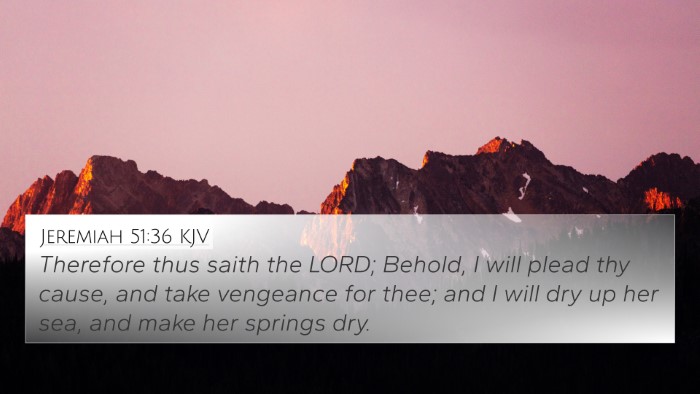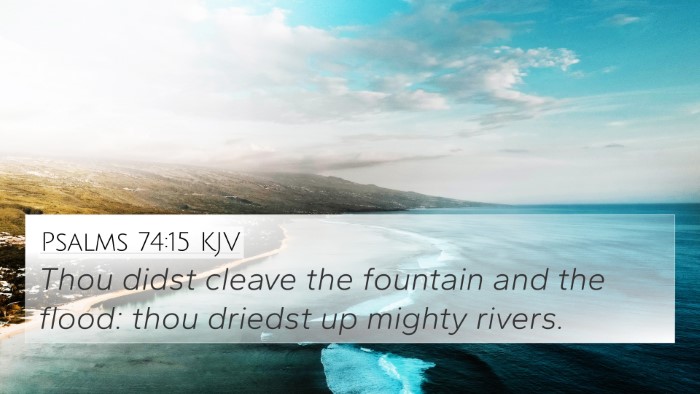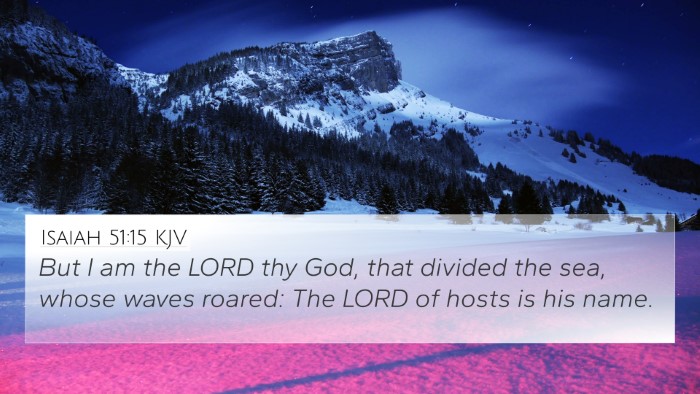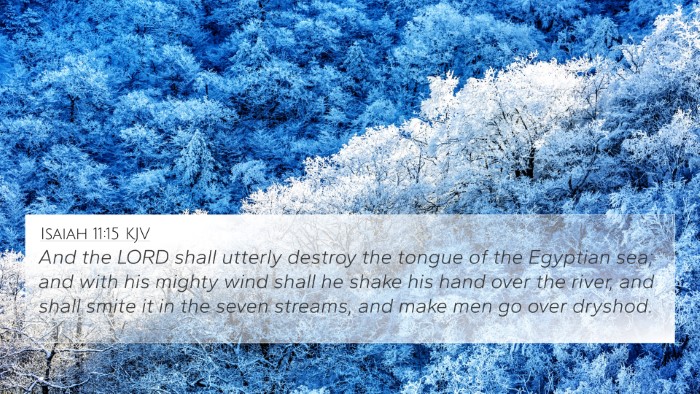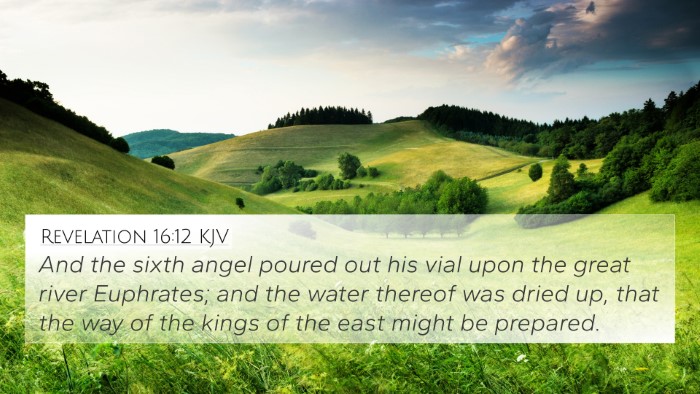Isaiah 44:27 - Understanding the Verse
Verse: "That saith to the deep, Be dry, and I will dry up thy rivers:" (Isaiah 44:27, KJV)
Summary of Isaiah 44:27
Isaiah 44:27 presents a powerful message regarding God’s sovereignty over nature. The verse illustrates God's command over the waters, symbolizing His control over all creation. This speaks to the theme of divine authority and the ability of God to intervene in the natural world, which also reflects His power to sustain and judge.
Commentary Insights
Matthew Henry's Commentary
Matthew Henry emphasizes the significance of God's proclamation to the deep, demonstrating His omnipotence in creation. He notes that God has authority over both the spiritual and physical realms, indicating that nothing occurs without His permission. Henry’s interpretation helps the reader appreciate the majesty of God’s word as it commands even the vastness of the seas.
Albert Barnes' Notes
Albert Barnes expands on the metaphorical implications of the deep and rivers. He indicates that these elements are representative of chaos and disorder in the biblical narrative. By stating "Be dry," God shows His capacity to bring order from chaos, reinforcing the central theme that God possesses the power to shape reality according to His will.
Adam Clarke's Commentary
Adam Clarke provides an analytical perspective on this verse, focusing on the exclusive ability of God to command nature. He suggests that this command to "dry up thy rivers" was specifically applicable to the Babylonian exiles, where the drying of rivers relates to both a literal and spiritual restoration. Clarke’s insight reflects on God's plan for His people and the eventual restoration of Israel.
Bible Cross-References
This verse relates to various other scriptural texts that highlight God's authority over creation:
- Isaiah 43:16: "Thus saith the LORD, which maketh a way in the sea, and a path in the mighty waters."
- Job 12:15: "Behold, he taketh away, who can hinder him? Who will say unto him, What doest thou?"
- Psalms 89:9: "Thou rulest the raging of the sea: when the waves thereof arise, thou stillest them."
- Revelation 21:1: "And I saw a new heaven and a new earth: for the first heaven and the first earth were passed away; and there was no more sea."
- Jeremiah 51:36: "Therefore thus saith the LORD; Behold, I will plead thy cause, and take vengeance for thee; and I will dry up her sea, and make her springs dry."
- Isaiah 45:1: "Thus saith the LORD to his anointed, to Cyrus, whose right hand I have holden, to subdue nations before him..."
- Exodus 14:21: "And Moses stretched out his hand over the sea; and the LORD caused the sea to go back by a strong east wind all that night..."
Thematic Connections
Isaiah 44:27 can be thematically linked to various other verses within the Bible that deal with God’s power and sovereignty:
- The Power over Nature: Several verses affirm God's authority over natural elements, as seen in Psalms 46:2-3, which speaks of a God who brings calm even amid turmoil.
- God's Sovereignty in Restoration: The theme of restoration, as indicated in Isaiah 40:4-5, reinforces His power to transform landscapes and lives.
- Divine Intervention: References like Mark 4:39, where Jesus calms the storm, showcase the continuity of God's nature through both Old and New Testaments.
- Judgment and Mercy: Micah 7:19 expresses how God casts our sins into the depths of the sea, signifying His capacity for both judgment and forgiveness.
Exploring Cross-References in Scripture
Cross-referencing biblical texts aids in understanding and interpreting scripture more deeply. Here are some tools and resources for effective Bible cross-referencing:
- Bible Concordance: A helpful tool for locating verses related to specific words or themes.
- Bible Cross-Reference Guide: Provides insights into verses that share common themes or teachings.
- Cross-Reference Bible Study: Methods for studying connections between verses to enhance understanding.
- Bible Reference Resources: Comprehensive materials that assist in tracing connections between different passages.
Conclusion
Isaiah 44:27 is not just a statement about nature; it is a declaration of God's ultimate authority and ability to bring order and restoration. By cross-referencing this verse with others, one can uncover thematic connections that enrich our understanding of God's character and His interactions with humanity throughout the scriptures. Studying these cross-references can lead to profound insights and a deeper appreciation of the Biblical narrative.

